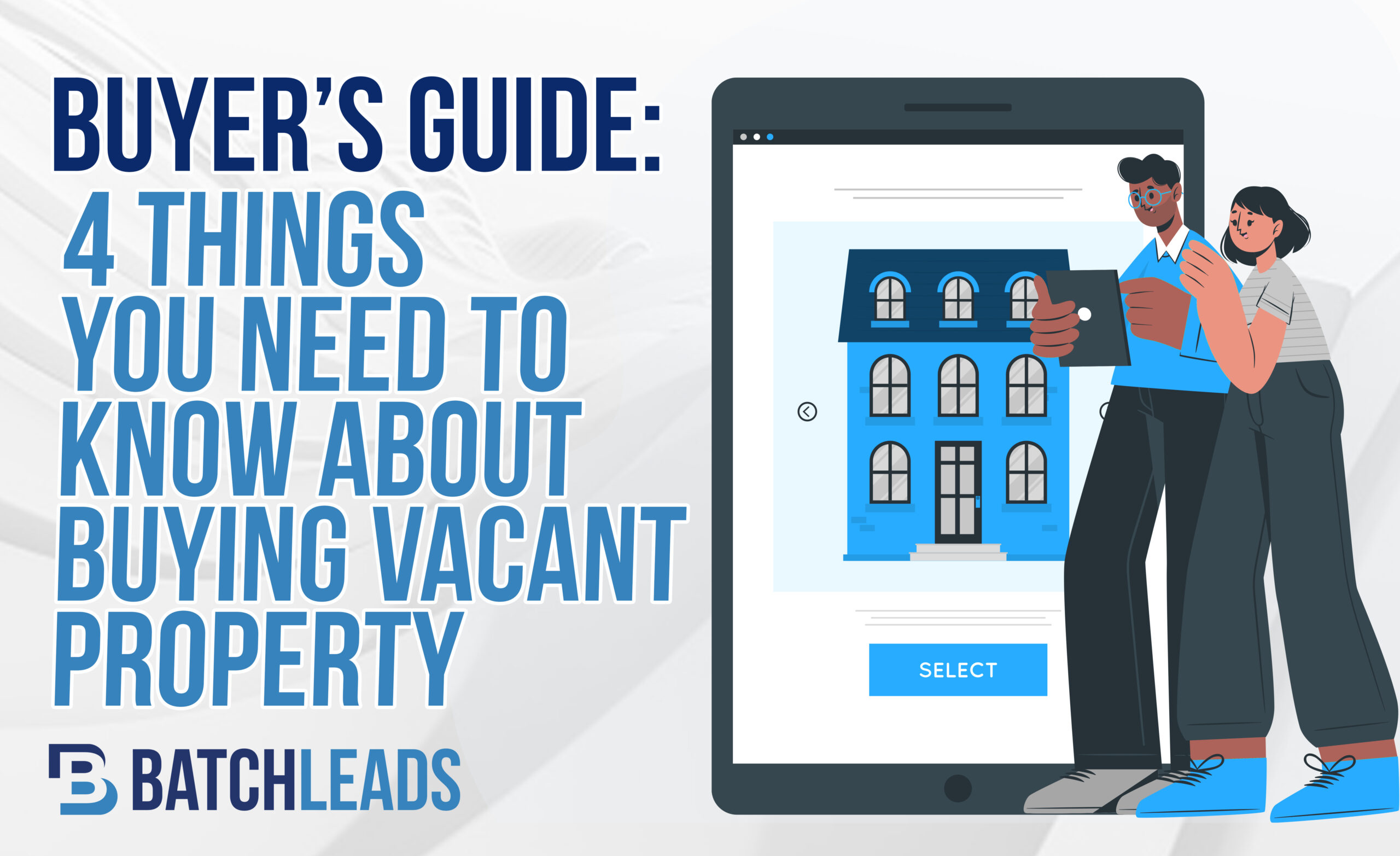Investing in vacant property is a cost-effective way to boost your real estate income. Even though these properties may look ugly on the outside, they have the potential to help you broaden your portfolio and increase your revenue. Suppose you don’t have experience buying, renovating, fixing and flipping, or renting previously vacant property. In that case, you need to spend some time doing your homework and evaluating investment strategies. Here are four things you need to know if you plan on buying a vacant property.
1.Accurately Assess the Damage
Anyone who works with vacant properties must first be ready to deal with significant property damage. A home sitting empty for a while may have extensive damage, but an investor has to be able to look past the damage and determine the potential. Some damage may be merely cosmetic, such as vandalism or superficial interior issues.
You may also encounter damage from pests, such as mice, bugs, or small rodents, and have to hire a pest control service. Different types of damage that may be more catastrophic, such as flood or fire damage, often require a more significant investment than you’re willing to make.
2.Don’t Overlook Maintenance Costs
Another factor to think about when investing in these properties is the upkeep. Vacant homes may not have been properly maintained for months or years and may include a backlog of needed maintenance. It’s important to accurately assess what’s required to make the home liveable.
Once you purchase the home, you have to continue to pay for standard home maintenance, such as HVAC service, gutter cleaning, lawn care, inspecting and repairing the roof, winterizing the home and exterior paint. Investors need to carefully consider how much upkeep is required for a potential property and calculate if it’s within their budget.
3.Understand your Insurance Needs
You may also have to budget for an extra insurance policy and vacant property insurance. A standard homeowner’s policy may not cover vacant homes, so you may need to invest in additional coverage. This type of coverage can protect you against vandalism, rodents, and other issues that occur with vacant properties.
4.Prioritize the Search Process
The last thing to understand about investing in vacant property is that it can often be challenging and time-consuming to find property with good investment potential. These properties aren’t often advertised via traditional means and aren’t usually listed for sale by realtors. You’ll have to look for leads through other avenues, such as foreclosure lists, tax sale records, fire records, and insurance claims.
Key Takeaways
A vacant property can be a great investment, but you need to be aware of the risks that come with it. Unexpected repair costs, insurance requirements, and unknown damage can quickly reduce your profits. You also need to be sure you have enough capital on hand to cover these expenses before you buy. However, if you buy at the right price, you will have several options for how you use the property and generate revenue.



